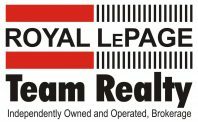What You Need to Know About Cannabis Legalization in the Housing Market

Legal Recreational Cannabis and the Impact on the Ottawa Real Estate Market
Updated 24 April 2020
Recreational cannabis has been legal in Canada since October 2018. Saskatchewan’s implementation of the new law has been the most efficient. Ontario was the slowest; however, it is now improving the availability of cannabis products.
Federal and Provincial regulations, as well as City bylaws, are continually being updated, how will this impact the real estate industry now and what will it be in the future? Keeping current on this is very important; therefore, it is wise to work with a knowledgeable, professional and trustworthy Real Estate Agent REALTOR®.
Selling your home in the legal cannabis world. What do I need to know?
When selling your home, it is essential to consider the potential buyers’ perspective. If cannabis has been smoked in the house, extra steps will be required when preparing your home to be shown. Bad smells of any type may not appeal to a potential buyer. The smell of cannabis may affect the price of your house. We strongly recommend that you get the house repainted, the carpets and drapes cleaned or replaced and consider getting an ozone machine to neutralize the smells. When completed, have friends or neighbours visit the house to ensure it passes the smell test.
Buying a home in the legal cannabis world. What do I need to know?
Consult with your Real Estate Agent REALTOR® to see if additional inspections are required. Have your REALTOR® include a clause in the Agreement of Purchase and Sale regarding the use and growing of cannabis in the house. If cannabis has been smoked or grown, let your building inspector know and have them check for possible structural damage, mould and wiring that may not be up to code. It can cost many thousands of dollars to effect the repairs, and then there is the cost to remove the smells. If the house was used as an illegal grow op, you might think that you are getting a bargain but proceed with caution.
Will pot legalization affect my home insurance?
When dealing with your insurance agent, it is always best to be truthful and honest. Insurance companies have been reluctant to insure former grow ops. The Cannabis Act allows for the growth of four plants per household. The law and your insurance company require that all the seed and starter material must come from legal sources and receipts are always needed. Acquiring starting materials will become more accessible in the future but remains a challenge. It is best to keep all the receipts and paperwork in a safe location as they may be required as proof in the future.
Rental Properties
Being a property owner or landlord is never easy. The recent changes to the laws have made it even more challenging. Landlords are legitimately concerned about the effect of recreational cannabis on their rental properties. The Cannabis Act applies to you as the property owner and to the tenants. The tenant’s right to smoke tobacco or cannabis is up to the existing lease agreement and your building rules and regulations. It is always vital for tenants and their guests to know the building rules.
If the tenant does not pay their own hydro, always check for unusually high usage. Abnormal hydro usage may indicate that the tenants are growing plants in the unit. Always include a no-smoking rule in the lease. Section 10 of Ontario’s standard Residential Tenancy Agreement allows you to specify smoking rules. Include a ‘no grow’ rule in the lease that specifically prohibits the growing of cannabis plants in the rental unit. The use of spot checks is always a good way to check on your tenants. It is best to have the tenant in the unit during the visit. However, in Ontario, you can enter the unit provided you have given proper written notice to the tenant.
Condo Properties
Over the last year, Ottawa condo boards have been working hard to get approval for new rules and bylaws to deal with the Cannabis Act. Many have chosen to go completely smoke-free in all common spaces. Many have also included the actual condo units, including balconies. If you are renting your condo, make sure to give the tenants a copy of the condominium rules and bylaws. If you have any questions, it is best to contact the condo board.
With the Cannabis Act only starting its second year, there are more changes to come. The introduction of edible cannabis products may reduce the amount of cannabis that is smoked in private homes. The best way to keep up to date with all the changes is to work with a Real Estate Agent REALTOR®.
For more information, check out the Ontario cannabis legalization check out https://www.ontario.ca/page/cannabis or talk to your REALTOR® today.

The trade marks displayed on this site, including CREA®, MLS®, Multiple Listing Service®, and the associated logos and design marks are owned by the Canadian Real Estate Association. REALTOR® is a trade mark of REALTOR® Canada Inc., a corporation owned by Canadian Real Estate Association and the National Association of REALTORS®. Other trade marks may be owned by real estate boards and other third parties. Nothing contained on this site gives any user the right or license to use any trade mark displayed on this site without the express permission of the owner. Ottawa Real Estate
powered by WEBKITS

